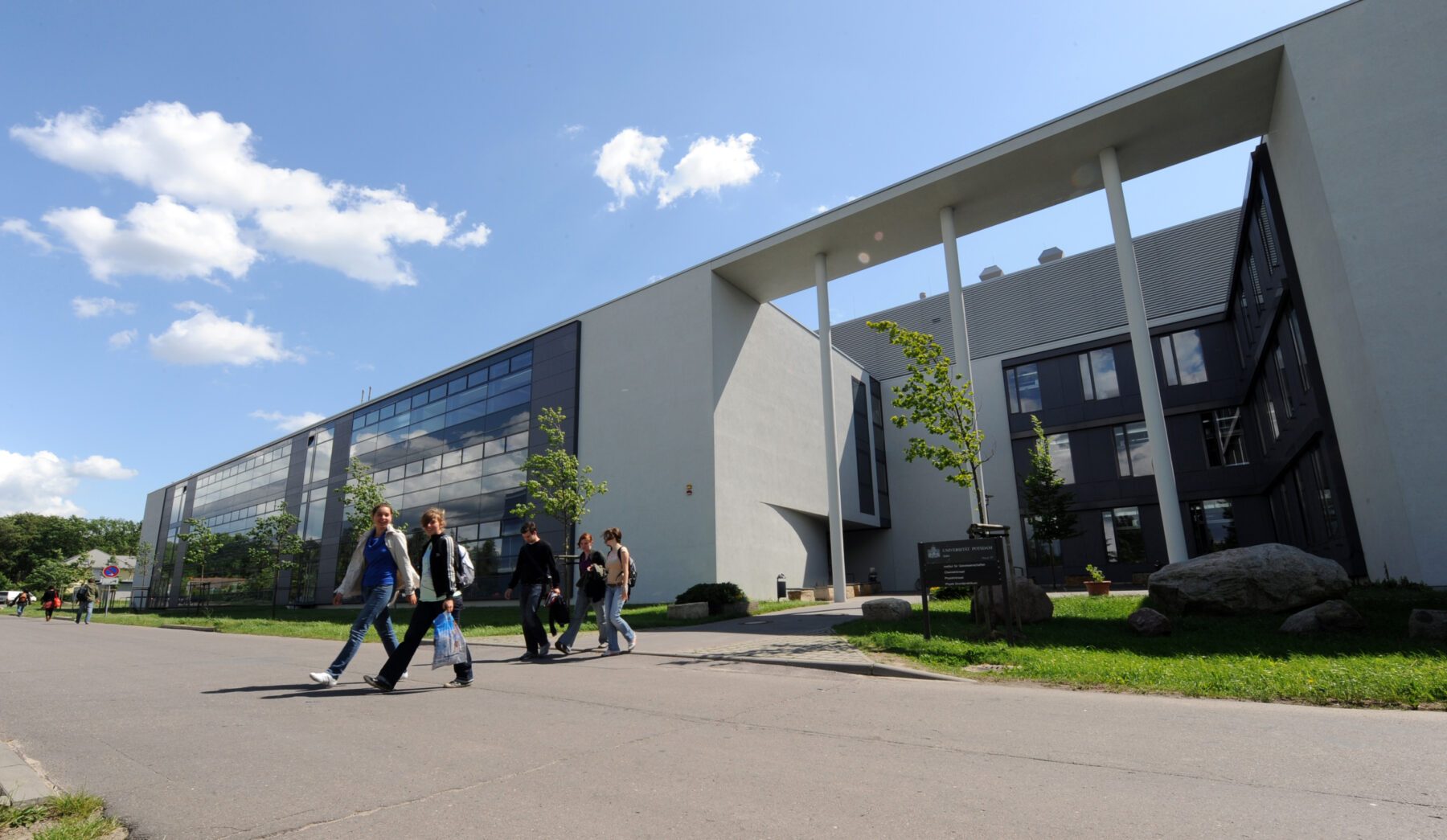
Potsdam Presents Itself at EXPO REAL as a Future Science City for AI and Digital Technologies
Brandenburg’s capital city of Potsdam is taking part in this year’s international real estate trade fair EXPO REAL in Munich. Together with ProPotsdam GmbH, the city is showcasing itself at the joint Berlin-Brandenburg stand as an emerging hub for science, innovation, and technology. At the opening panel on October 6, Deputy Mayor for Urban Development Bernd Rubelt presented the city’s current developments under the title “Potsdam Launches the Science Accelerator.” Central is the planned investment by the Hasso Plattner Foundation (HPF) in the expansion of the Hasso Plattner Institute (HPI).
By 2035, the Hasso Plattner Institute aims to significantly expand its Griebnitzsee Campus, transforming it into a world-leading institute for digital sciences with a strong focus on artificial intelligence (AI). The expansion includes the acquisition of additional land and buildings from the University of Potsdam, which will gradually be transferred to the Foundation. In return, HPF will provide the University with new replacement facilities at the upcoming Brauhausberg Campus.
Deputy Mayor Rubelt expressed optimism about the initiative: “The Hasso Plattner Foundation’s investment gives us a unique opportunity to develop Potsdam into an international beacon for science. This project will drive both research and urban innovation. I see this as a historic momentum that obliges us to seize the opportunities arising from it for our city. In view of the extensive expansion plans, we as the city administration are once again called upon to align our processes in such a way that decisions on urban development can be made more purposefully and at a faster pace.”
Founded in 1998 by SAP co-founder Hasso Plattner, the Hasso Plattner Institute is one of Germany’s leading academic institutions for IT Systems Engineering and a globally recognized center for computer science, digital innovation, and design thinking. Around 1,000 students are currently enrolled in practice-oriented programs covering topics such as AI, cybersecurity, data engineering, and digital health. Through its research and close partnerships with academia and industry, the HPI plays a key role in enhancing Potsdam’s global visibility as a science city.
The development of the new Brauhausberg University Campus offers major opportunities alongside urban challenges: improving accessibility, integrating historic landmarks with new buildings, and creating attractive inner-city housing for students. Rubelt called for strong collaboration between politics, administration, and business to ensure sustainable value creation for the state capital while maintaining focus on long-term projects such as Krampnitz and Golm.
Today, Potsdam is home to over 40 scientific institutions and around 10,000 researchers, making it one of Germany’s most vibrant research cities. The city benefits from a dynamic knowledge transfer ecosystem, particularly driven by numerous start-ups. Three major innovation clusters define Potsdam’s profile:
- Life Sciences and Biotechnology in the Potsdam Science Park in Golm
- Media, IT, Film, and Artificial Intelligence in Media City Babelsberg and Jungfernsee
- Climate and Earth Sciences on Telegraphenberg
Rubelt emphasized that Potsdam’s excellent infrastructure — including connections via the Berlin Outer Ring and S-Bahn — will continue to strengthen its integration into the Berlin-Brandenburg metropolitan region. The Potsdam Science Park (Golm), Griebnitzsee, Brauhausberg, and Jungfernsee campuses are already well connected by public transport.
Another large-scale development enhancing Potsdam’s visibility as a modern digital hub was presented by Mirko Nauheimer, Managing Director of RAW Potsdam GmbH. The RAW complex near the main station, a former railway repair facility from the 19th century, is being transformed into a vibrant urban quarter. The landmark Sheddachhalle — one of the city’s last major industrial heritage buildings — will be fully renovated and complemented by two new structures. The project will provide around 31,000 square meters of leasable space for offices, gastronomy, and events — creating capacity for roughly 1,000 workplaces.
With the new Krampnitz urban district, Potsdam is responding to the growing demand for housing: ProPotsdam GmbH Managing Director Bert Nicke presented the new Krampnitz urban district in northern Potsdam, officially opened in August. Built on a former military site, the district will offer living space for up to 10,000 residents — designed to be sustainable, low-traffic, and energy-efficient. A new elementary school, temporarily housing the Nord Gymnasium, is already operational, and several bus lines connect the area to downtown Potsdam and the surrounding region. ProPotsdam is currently marketing two development plots in Krampnitz at the fair.
Deputy Mayor Rubelt also presented another investment opportunity: the former Volkswagen Design Center in the Schiffbauergasse — a landmark property directly on the waterfront and in the heart of one of Potsdam’s most dynamic creative districts.
Following the presentation, the City of Potsdam hosted a reception at the joint stand with ProPotsdam, welcoming numerous guests for networking and exchange. The participatory urban model of Krampnitz once again proved to be a major visitor attraction, sparking lively discussions about both the new district and Potsdam’s broader urban development vision.
The fair continues until Wednesday afternoon.
Press Contact
Federal State Capital Potsdam
Mayor
Department Press and Communications
Head of deparment: Juliane Grimm-von Wedemeyer
email: Presse@Rathaus.Potsdam.de
Websit: www.potsdam.de/presse